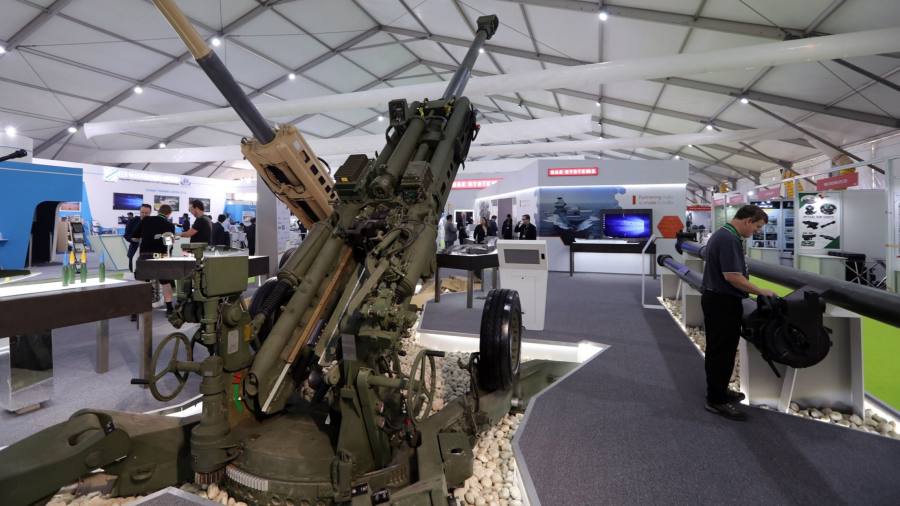
Receive free BAE Systems PLC updates
We’ll send you a myFT Daily Digest email rounding up the latest BAE Systems PLC news every morning.
BAE Systems’ pension scheme has appointed Goldman Sachs Asset Management to oversee its £23bn of defined benefit assets, the largest mandate of this kind in the UK to date.
The appointment is the latest sign that increasingly onerous compliance requirements, rising costs and unpredictable markets are pushing big asset owners like pension funds to outsource management of their portfolios to external firms — a business dubbed Outsourced Chief Investment Officer. They are betting that such OCIO agreements will help them improve performance and cut costs through greater scale and efficiency.
“Corporate DB schemes in the UK are continuing to mature,” said Chloe Kipling, head of Emea institutional client business at GSAM. “In some instances this is a catalyst for them to review what governance structure makes sense for the next stage, given the increasing complexity as it relates to investments.”
The almost 50-person in-house investment management team at BAE Systems is set to join GSAM towards the end of this year to continue managing the two DB schemes, which promise to pay employees’ pensions at a fixed level.
Back in October 2019, BAE’s four UK pension schemes — including the two largest, the BAE Systems Pension Scheme and the BAE Systems Executive Pension Scheme, which are covered by the agreement — had a funding deficit of £1.9bn. Following contributions by the parent sponsor BAE, a defence giant which builds everything from Eurofighter Typhoon jets to nuclear submarines, the schemes were fully funded at the next actuarial valuation in March 2021. As of June this year they had swung to a surplus of £600mn.
Andrew Gallagher, chair of trustees for the BAE Systems pension schemes, said: “As we continue to look at ways to further de-risk pension liabilities, reducing the cost and improving the efficiency of asset management are essential.”
Outsourcing agreements vary in the level of control that is delegated, with some clients wanting the external investment manager to handle everything: asset allocation, selection of individual funds and managers and finally all risk management and back-office functions. Others want to maintain a veto over key decisions, or only outsource funds earmarked for a particular type of asset.
There has been a flurry of deals in recent years. In February Royal Mail Pension Plan selected BlackRock to manage its £8.8bn in DB scheme assets. Last year the £13bn National Grid UK Pension Scheme appointed Russell Investments to an OCIO mandate; BlackRock was appointed by insurer AIG to manage up to $150bn in fixed income and private assets; and UK asset manager Schroders announced a new £10bn mandate managing energy provider Centrica’s pension schemes. In 2021, British Airways transferred £21.5bn in its two main pension schemes to BlackRock, at the time the largest such deal in the UK.
Goldman last year merged its wealth management and asset management businesses, with the combined unit now run by Marc Nachmann, a close confidant of chief executive David Solomon. The US bank is prioritising growth in asset and wealth management, businesses that are more predictable and stable than its core investment banking and trading activities.
Increases in long term interest rates have led to a significant improvement in the funding position of the UK’s defined benefit pension sector. DB pension schemes were sitting on an aggregate funding surplus of 113 per cent at the end of August, with assets of £1.42bn exceeding liabilities of £1.26bn, according to the consultant XPS.
Additional reporting by Chris Flood in London